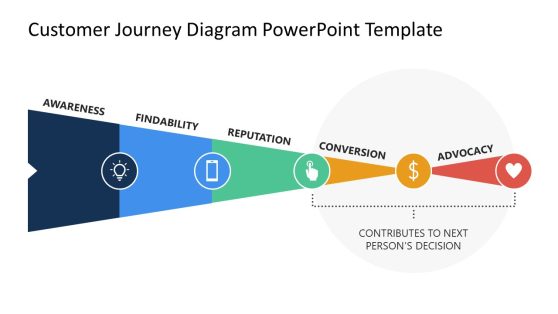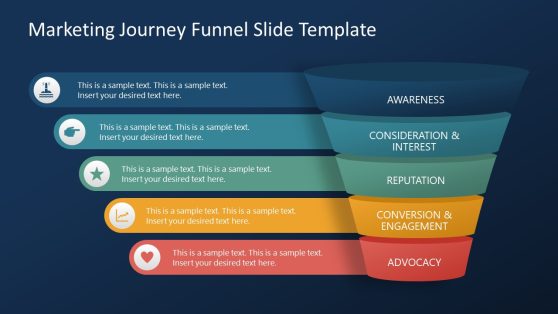Customer Journey Map Templates for PowerPoint & Google Slides
Download 100% editable customer journey map templates for PowerPoint & Google Slides presentations. Use the customer journey templates to identify your customers’ needs and ensures that all teams work towards the same goal.
Featured Templates
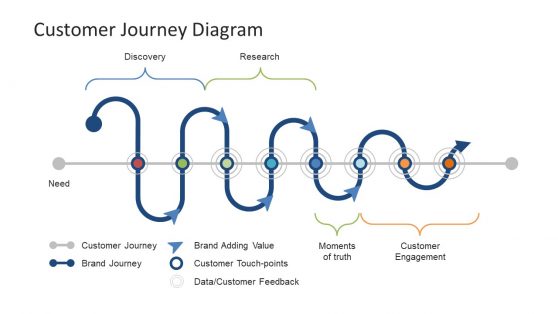
Customer Journey Diagram PowerPoint Template
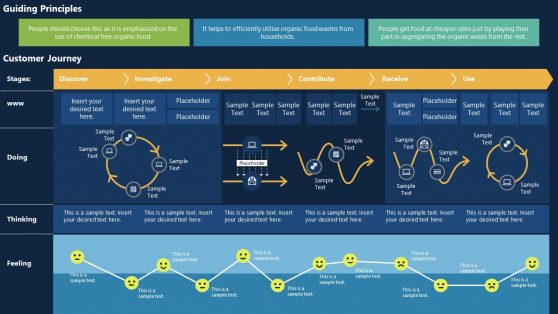
B2C Customer Journey Map PowerPoint Template
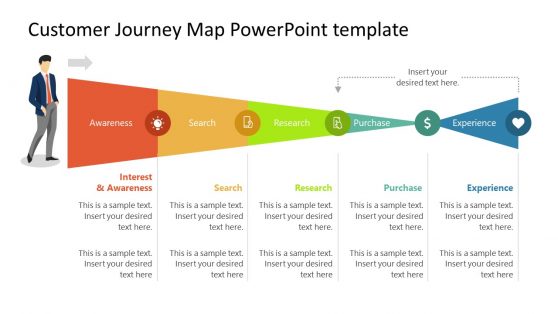
Customer Journey Map Horizontal PowerPoint Funnel
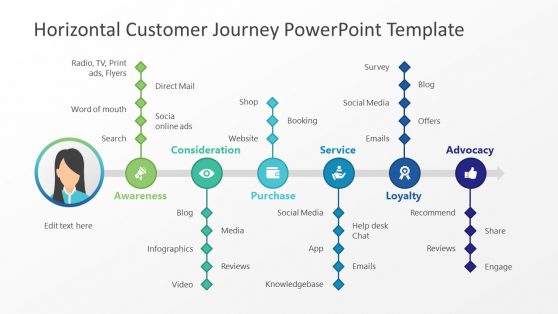
Horizontal Customer Journey PowerPoint Template
Latest Templates
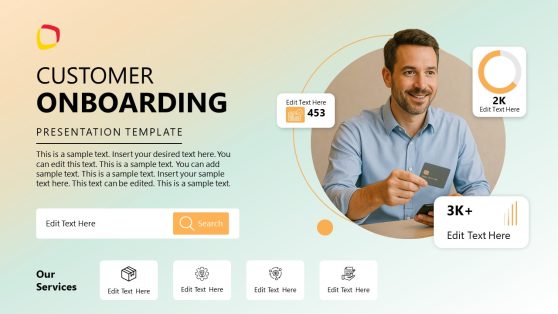
Customer Onboarding PowerPoint Template

Customer Success Playbook PowerPoint Template
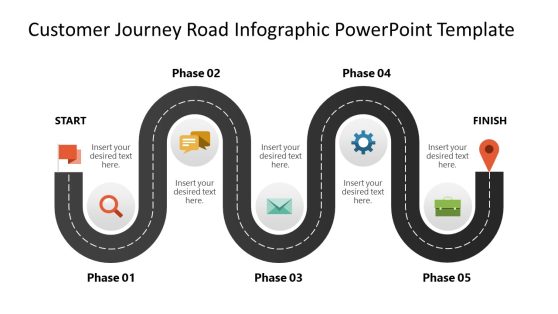
Customer Journey Road Infographic PowerPoint Template
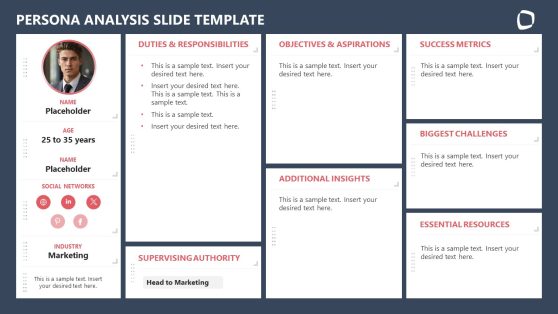
Persona Analysis PowerPoint Template

Go-to-Market Strategy PowerPoint Template
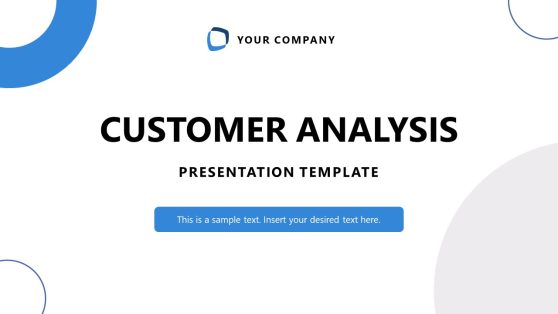
Customer Analysis Presentation Template
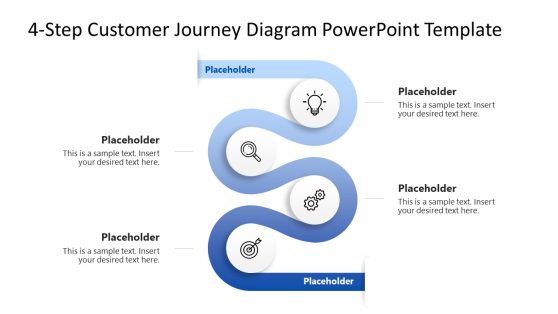
4-Step Customer Journey Diagram PowerPoint Template
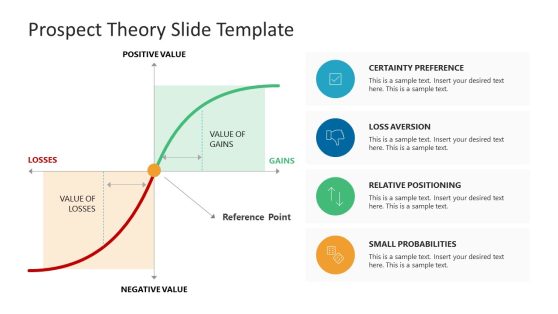
Prospect Theory PowerPoint Template
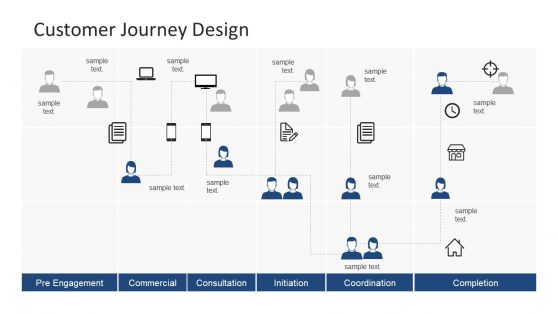
Customer Journey PowerPoint Template
Customer Journey Map templates are visual illustrations of the customers’ experience with a company, from initial awareness to post-purchase. It helps you as a brand to understand your customers’ pain points and needs.
Using a Customer Journey PowerPoint Map templates can help business professionals to illustrate the process of mapping the customer journey. The customer journey PPT templates provides a pre-defined structure for mapping the customer journey and helps you remain consistent and comprehensive in your analysis.
Creating a Customer Journey Map can be overwhelming. You must understand the different types of customers your company has and their needs and goals. Using our customizable Customer Journey Map Template will save you the stress of designing the template, allow you to focus on filling in the details of your customer journey slide, and make your work easier, faster, and more efficient.
Download our customizable CJM templates with presentation slides, including diagrams that you can use to prepare presentations on marketing, customer segmentation, and behavior.
What is a Customer Journey Map?
A Customer Journey Map is a visual illustration of a customer’s experiences and interactions with a company or brand throughout their journey.
What are the 7 Steps to Map The Customer Journey?
Below are 7 steps to map your customer journey:
- Identify the customer personas: Understand the different types of customers you have and their needs and goals.
- Define the journey stages: Break down the journey into stages, such as awareness, consideration, and purchase.
- Gather data: Collect data on customer interactions and experiences at each stage of the journey.
- Analyze the data: Look for patterns and insights in the data to understand the customer’s needs and pain points.
- Identify touchpoints: Identify all the different touchpoints the customer has with the company, such as the website, social media, and customer service.
- Create the map: Use the data and insights to represent the customer journey visually.
- Test and refine: Test the map with customers and gather feedback to refine and improve it.
How do I create a Customer Journey Map in PowerPoint?
Creating a customer journey map involves research, planning, and gathering feedback to ensure the customer journey is accurately represented in the template.
The process begins with defining the scope of the customer journey map; this includes determining the specific customer experience you want to map out, as well as any goals or objectives associated with it. Following this, you must identify your target audience and create buyer personas that represent your typical customers.
Next, it is important to identify all the touchpoints that customers have with your brand – such as website visits, phone calls, social media interactions, and in-store experiences – and document how customers feel about each one. To do this effectively, it is important to draw on empathy and customer feedback to understand their emotions at each touchpoint so you can accurately reflect them in your map.
Once these steps are complete, you can use a customer journey slide for presentations or design software to create a visual representation of the customer journey map. This could be in the form of a timeline or flowchart that illustrates each stage of their experience, including any touchpoints or emotions associated with it. It is important to test this preliminary version with users before refining it based on their feedback.
Lastly, use the finalized customer journey slide template as a guide when looking for opportunities to improve the customer experience by addressing any pain points they may have encountered along their journey. By taking all these steps into account when creating a customer journey map template and using it wisely thereafter, businesses can ensure they are providing an optimal experience for their customers every time.
How to make a Customer Journey Map from a pre-made template?
For you to make a customer journey map from a pre-made template, start by identifying the customer personas and journey stages.
Gather data on customer interactions and experiences at each stage of the journey. Use this data to fill in the template, identify touchpoints, and map the customer’s journey.
What is a good Customer Journey Map?
A good customer journey map accurately represents the customer’s experience and is easy to understand. It should include all relevant touchpoints, journey stages, and customer personas. It should also be tested and refined with customer feedback to ensure it is accurate and effective in improving the customer experience.
Additionally, a good customer journey map should be actionable and provide clear recommendations for improving the customer experience. It should also be regularly reviewed and updated to reflect changes in customer behavior or new touchpoints.
What Are The Benefits of Creating a Customer Journey Map?
Creating a customer journey map can bring the following benefits to your company.
- It improves your customer experience.
- It increases your sales.
- It improves communication among your employees.
- It helps create a better marketing strategy.
- It increases your customer loyalty.
- It helps your business to identify opportunities for upselling and cross-selling.
- It helps you to optimize marketing efforts by identifying the most effective marketing channels and tactics.
